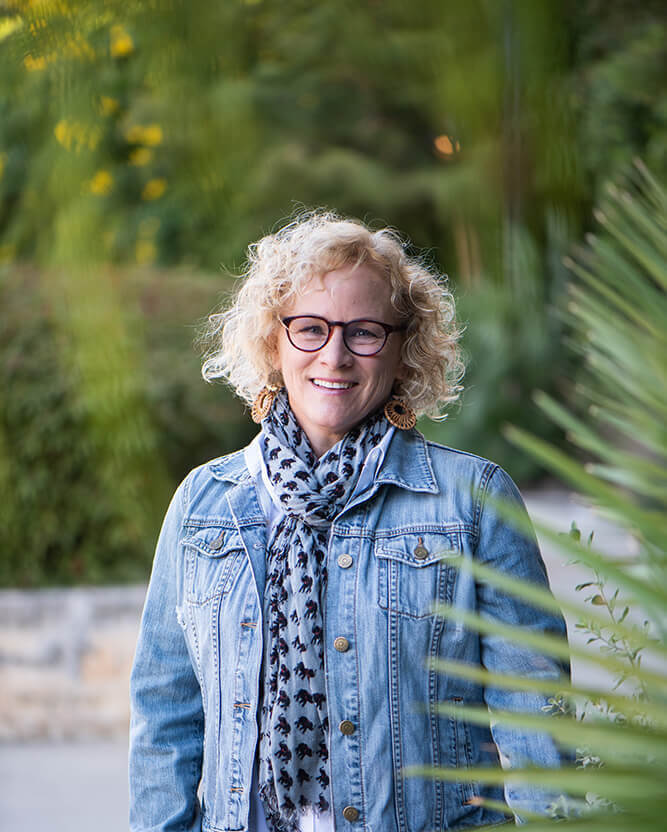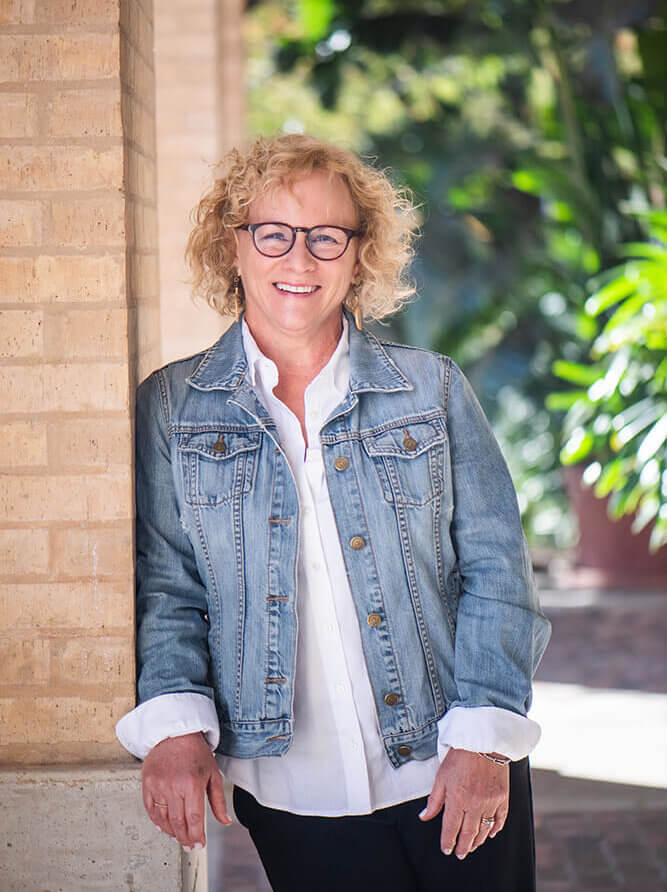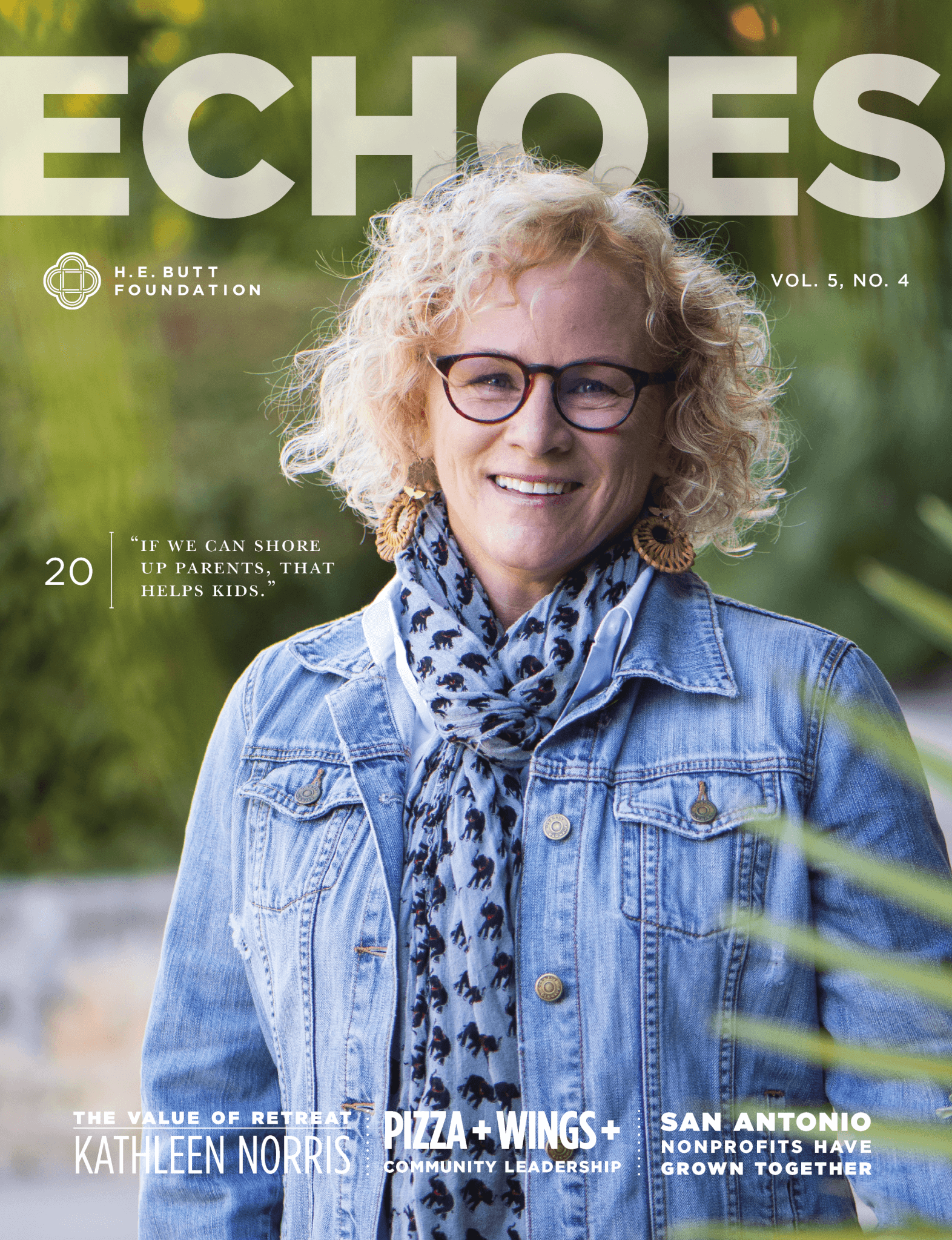
“It’s been a tough few months, but Hilary has been a godsend,” said one parent who regularly attends Laity Lodge Family Camp. Hilary Monford is a licensed clinical social worker (LCSW) and a mental health consultant for Laity Lodge Family Camp and LLYC.

But before this story goes any further, let’s reflect a moment. It has been a tough few months in pandemic world. Twenty-two million Americans lost their jobs. Four million remain unemployed. Excessive deaths have soared to nearly 300,000 (not all from COVID-19), which means millions of Americans are grieving the recent loss of a friend or family member. Schools continue to limit activities and attendance. Many playgrounds are still fenced off. Movie theaters are dark. We are all wearing masks.
Now back to that parent. Because therapy still has a stigma, the family preferred to remain anonymous. “We called Hilary in a moment of real fear and uncertainty,” the parent explained, “fear for what [our teenager] was going through and uncertainty of how to be a parent. Hilary immediately established calm and helped us trust that help was available.”
Years ago, Hilary was on the original advisory board for Family Camp with Deborah Rogers and several others, when the decision was made to include therapy as a camp activity.
“We wanted to normalize it,” Monford explains. “So it’s like every other activity. They introduce me during the opening Roundup session and there is a sign-up sheet [for counseling] just like normal activities.”
When the world is normal and families are regularly visiting Headwaters, many retreats still offer families the chance to sign up for marriage counseling, individual counseling, or counseling with the kids. This summer, Jonny May, Michael Chiles, David Roper, and Hilary Monford were all scheduled to be available to families during weeklong camps. Those camps never happened.
Yet, in the middle of a pandemic, families need this service more than ever. The National Alliance for Mental Illness (NAMI) reported a 65% increase in calls to their helpline during the summer. The Center for Disease Control reported 40% of Americans are experiencing mental and behavioral health problems like substance abuse or depression. In late June, the CDC reported that 25% of teenagers 18-24 had contemplated suicide in the last 30 days.
As these statistics were coming out in the news, Senior Director Cary Hendricks couldn’t connect families with counselors at Headwaters. So he got creative.
“We thought, let’s offer counseling to LLFC families free of charge—the same as we would have offered when families are at camp in the summer,” Hendricks said. Four mental health professionals participated in the program—two in Austin and two in San Antonio—the same four who had been scheduled to serve during camp. Families that had been registered for 2020 summer sessions received an email explaining the opportunity and introducing them to their potential counselor or therapist. Camp was still closed, but the foundation arranged for them to meet virtually.
Dozens of families may not seem like many, but it’s what Hendricks and his team could do. He saw a need and took action, paying honorariums to counselors and therapists on behalf of the families who reached out, and he hopes the program helps destigmatize therapy for more families who might be considering it.
Because pandemic world is a stressful world. As NAMI’s chief medical officer, Dr. Ken Duckworth, told reporters this summer, “You can conclusively say the adults are not alright in America.”
“Oh gosh. It’s the sense of isolation,” Monford says, “that it’s never going to end. So much of how kids are doing is how mom and dad are doing. If mom and dad are maintaining well, then kids are going to have less anxiety. If we can shore up parents, that helps kids.”
When do you know you might need to get help? “If you are thinking of it, you should go,” Monford advises. She suggests committing to a few visits, maybe three, before deciding whether to keep going.
Everyone is struggling right now, so Monford encourages everyone to get serious about self-care as well. “It’s mandatory. Two self-care things we talk about: Sleep—you gotta get enough. Exercise—or some kind of physical movement. These things are foundational to sound mental health.”
Talking about self-care and mental health with your family can be an important first step. Laura Horne, chief program officer of Active Minds, a nonprofit advocacy group supporting mental health education for students, suggests families be open with each other about their own mental health.
Personally, I have sought counseling throughout the summer and fall, and I was open with my kids about it. Other members of my family are talking with counselors now too. These are hard times, and it is okay to admit that we may need help.
When parents discuss mental health with their kids, Horne suggests that we start by validating their feelings without trying to fix them. A parent can help by appreciating the vulnerability and courage it takes for others to share what they are feeling. Then, after validation and appreciation, see if the family can agree on one step to take that might help.
It doesn’t have to be complicated.
Maybe Friday night is movie night with pizza. Maybe you play games in the yard. Maybe each person calls one friend to reconnect. “Have pajama day—all day Saturday—something you wouldn’t normally do,” Monford explains. “You have to have something to look forward to every week. Otherwise it is just drudgery.”
And one more thing, Monford suggests. Give yourself grace: “You gotta let yourself off the hook a little bit. There is no going big. Just maintain small and be good with that.”
A lot has changed since Margo Pruitt first moved into the Canyon as the Echo Valley nurse in the summer of 1996.
H. E. Butt Foundation cohort aims to help San Antonio churches and church leaders break mental health stigmas.
